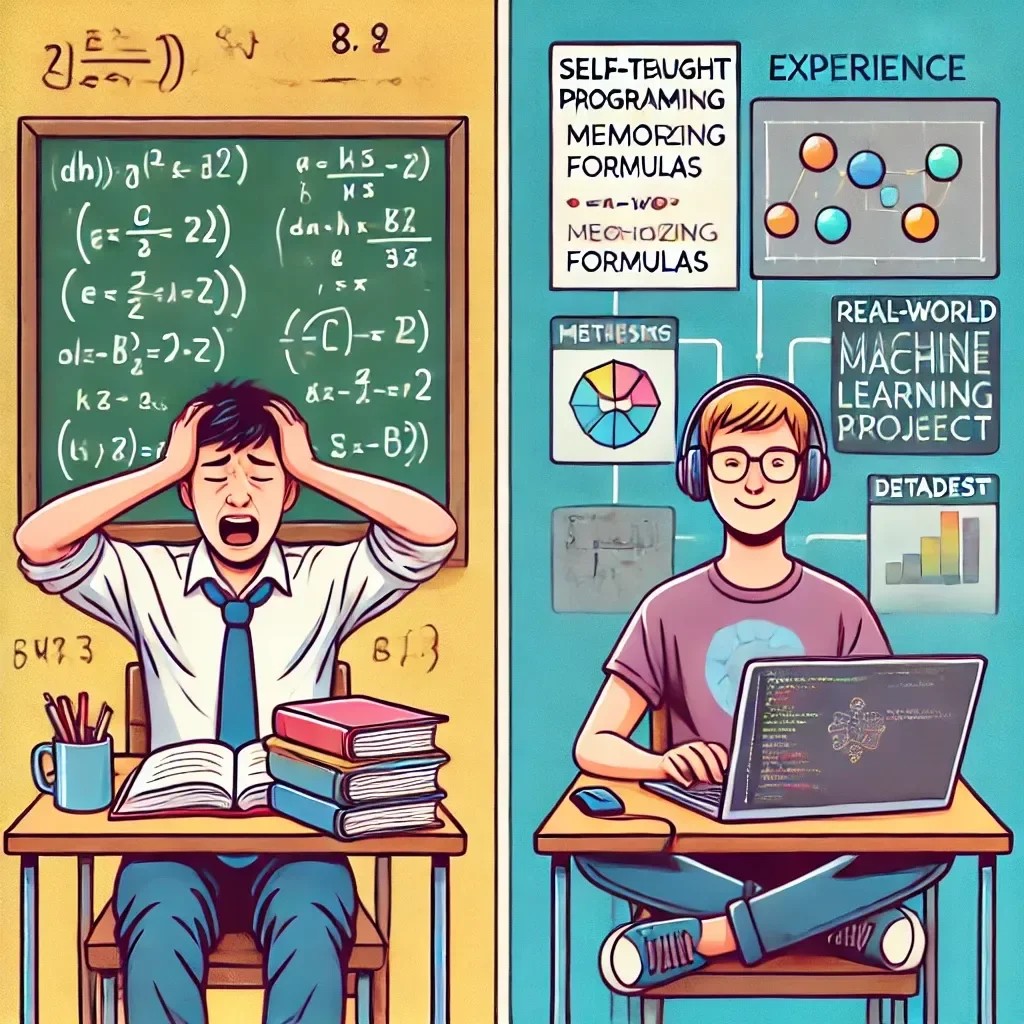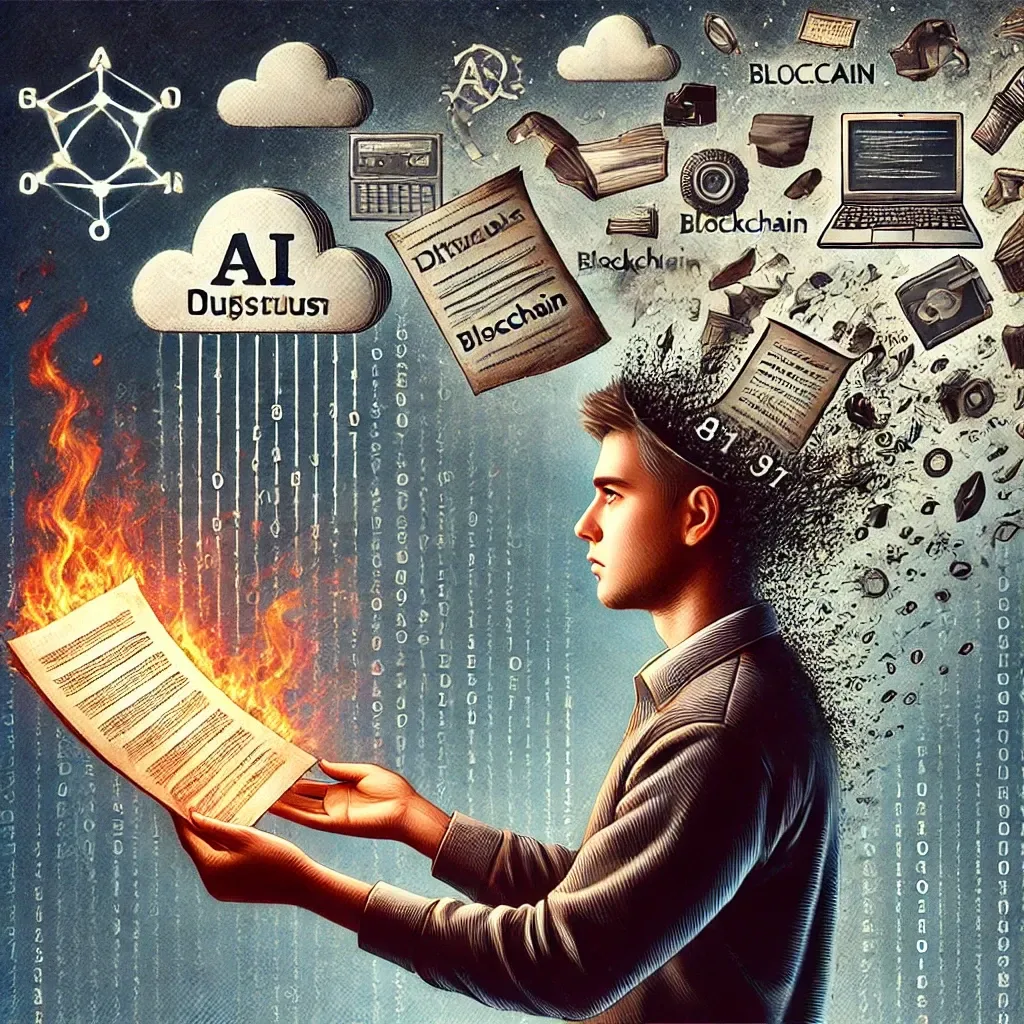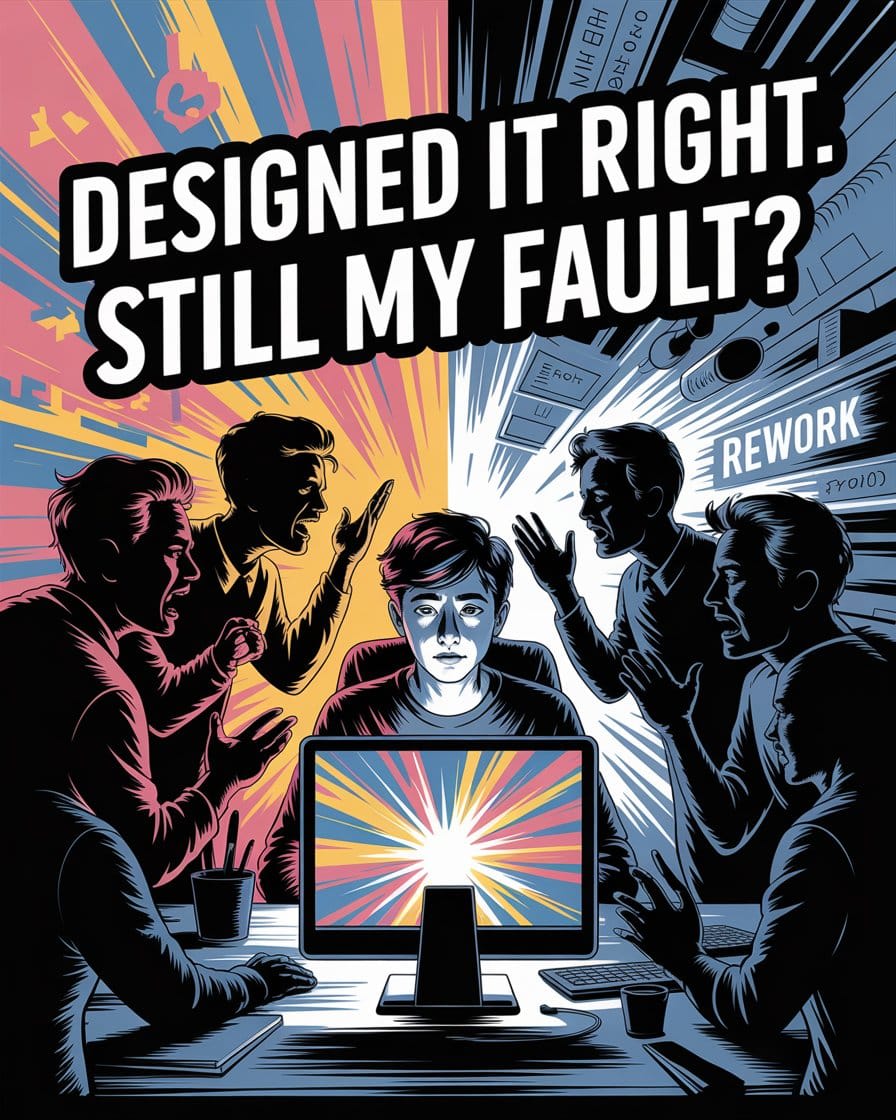You Have Everything, But You Know Nothing: A Critique of Education
Irony of education? We learn Regression, Probability, and Matrices — but never, how they power ML. Studied ML theory, but the real foundations were hidden in statistics. Only years later, I connect the dots. Education gives us tools but never shows us how to use them. Time to reclaim learning!

A few days into my #100DaysOfCode challenge, I had a realization that left me both amused and frustrated. As I dived into Machine Learning, I came across concepts like Regression, Probability, Matrices, and Statistics — all of which seemed oddly familiar. I had studied these things before; not once, but twice — during my BCA and MCA at Mahatma Gandhi University. Yet, back then, they felt like just another set of formulas and equations to memorize for the exams.
I had an entire paper on Machine Learning during my MCA, but it was nothing more than a theoretical snooze-fest filled with definitions and outdated algorithms. On the other hand, subjects like Statistics and Linear Algebra in BCA/MCA contained everything I needed to understand ML, but no one ever pointed that out. It took me 2-3 years after graduation to finally connect the dots.
The Great Irony of Education
This is not just my story; it’s the story of countless students trapped in an education system that hands you all the right tools but never teaches you how to use them. It's like giving someone all the ingredients for a gourmet dish but never telling them what they’re supposed to cook.
- We studied Regression but never applied it to predict real-world data.
- We learned about Probability but never used it to make real-life decisions.
- We worked with Matrices but never knew they power everything from 3D Graphics to Neural Networks.
- We memorized Linear Algebra but never saw its role in computer vision and deep learning.
- We learned about Checksum Algorithms, but no one told us their importance in Data Integrity and Security. Interestingly, in just the last four months, I encountered checksum in two different situations — once while working on GTIN Validation and another while integrating a Payment Gateway. Only then did I truly understand its significance.

The frustrating part? Actually, I personally had a very rough idea that these statistics topics were related to Machine Learning (Thanks to Inovus Labs and its mentors back then...). But the way our syllabus was designed, the ML paper and the Statistics paper stayed on opposite ends of the river — never meeting, never showing us how they connect, never teaching us how to actually do things. No room to get your hands dirty.
Instead, our syllabus was designed in a way that these subjects remained isolated, with no bridges connecting them to practical, real-world applications.
The Cost of Theoretical Learning
By the time we realize the importance of what we learned in college, we are already years behind those who studied it with a hands-on approach.
- A self-taught ML engineer, who learned from Kaggle competitions and real-world datasets, is far ahead of someone who just passed an ML paper in college.
- A programmer who built projects using Linear Algebra and Probability unknowingly understands ML fundamentals better than someone who scored an A+ in Statistics. And that’s the painful truth.
"Traditional education forces you to study everything, but it doesn’t let you understand anything."
What Needs to Change?
The system itself needs a major overhaul, but as individuals, we can't wait for that to happen. We need to take responsibility for our own learning.
- Stop depending on college alone. Follow online resources, work on projects, and explore beyond the syllabus.
- Teachers must evolve. Instead of just explaining theories, they should incorporate real-world use cases, coding exercises, and industry-relevant applications.
- Exams should test application, not memorization. Instead of asking students to define Regression, ask them to implement it on real data.
- Courses should integrate subjects. Instead of teaching statistics and ML separately, show how they work together in real-world AI systems.
- Students must stay updated. Learning doesn't stop with textbooks; actively exploring emerging trends and practical applications is crucial.
"Every subject in the syllabus exists for a reason. Understand its purpose first — only then will learning be meaningful, and connecting dots be effortless."
Conclusion: The Wake-up Call
The frustrating part is not that we didn’t learn these concepts — it’s that we learned them without knowing their purpose.
Had our education system connected the dots for us, we wouldn’t have realized their importance years later. We would have been ahead of the curve, not playing catch-up. But it’s never too late. The internet has given us the power to self-learn, and that’s exactly what I’m doing now with my #100DaysOfCode challenge.
So, if you're still in college, don’t wait to figure this out later. Start applying what you learn now. If you’ve already graduated, it’s time to reclaim your education.
"Because knowing something only matters, when you understand how to use it."



